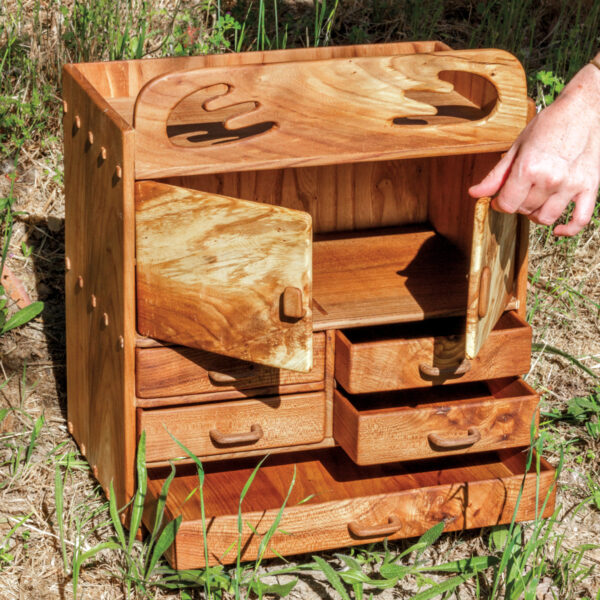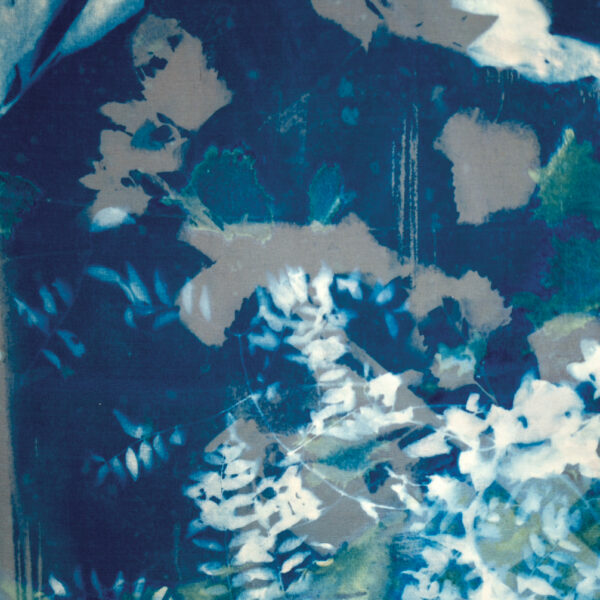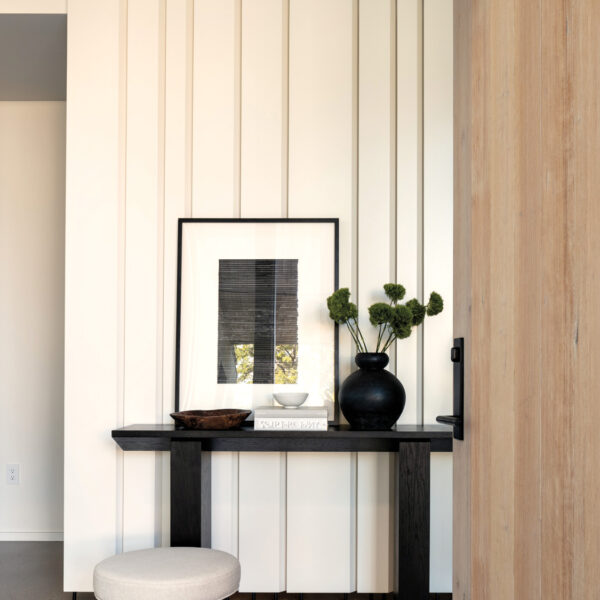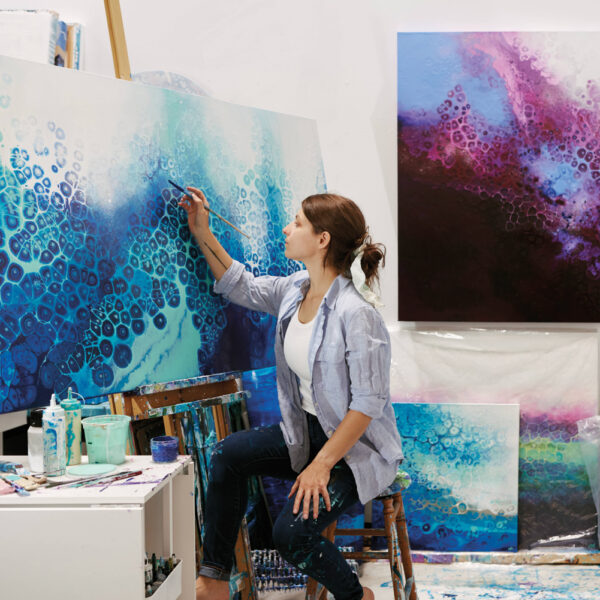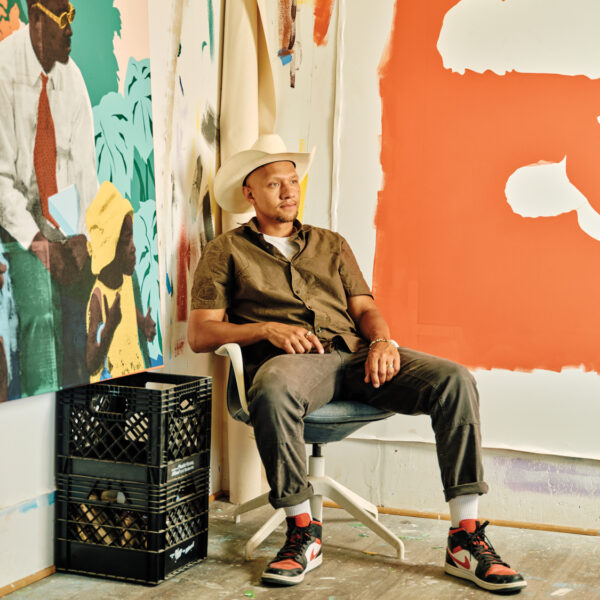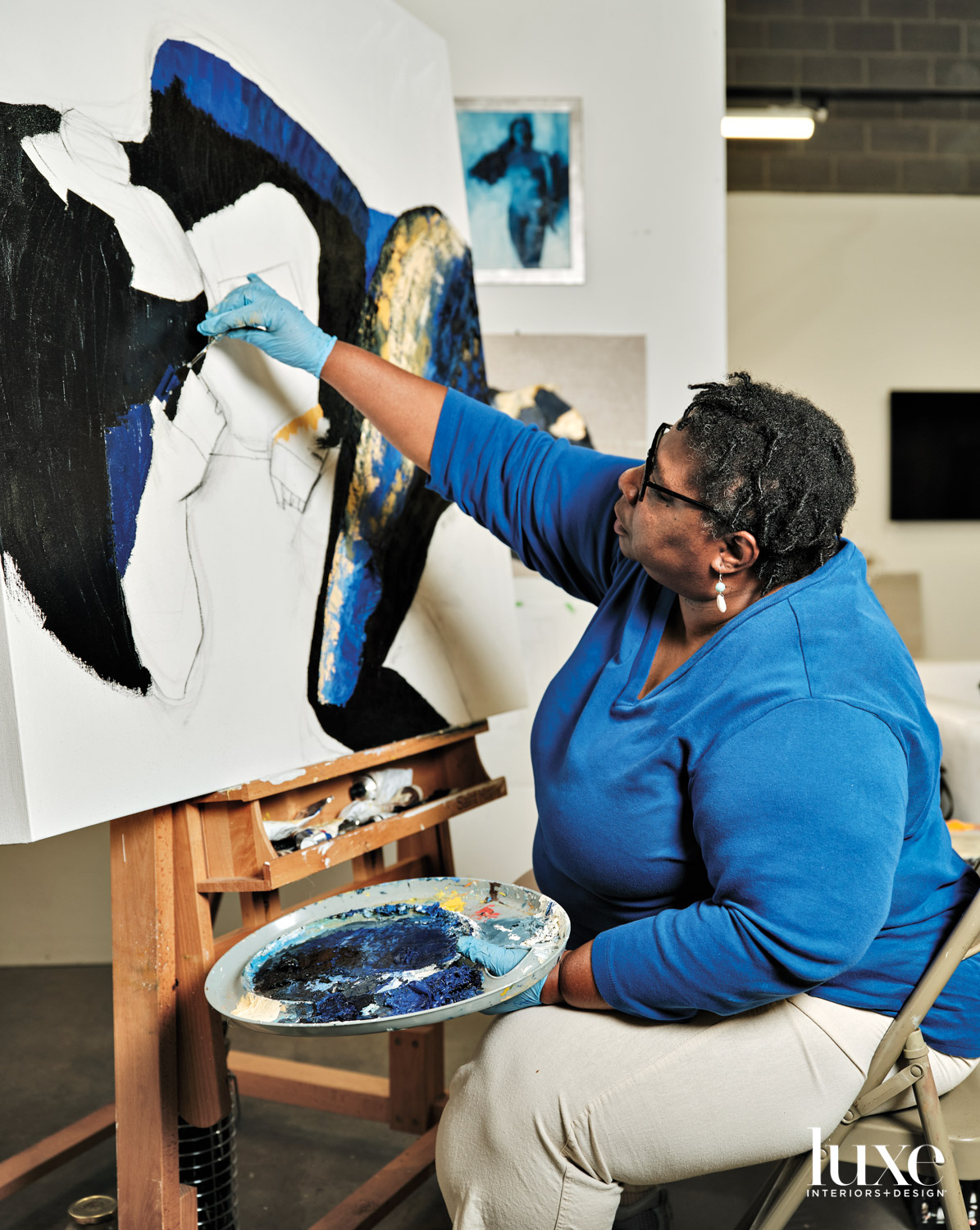
Artist Rochelle Johnson works in her Denver studio.
Early in the pandemic, Denver-based painter Rochelle Johnson bumped into Joseph, a musician and model she had befriended before the world changed. “I was asking him how he was surviving,” she says. “His profession had ceased.” Rochelle hired him to model for her. “We were both in a frightened stage, because we didn’t know what was going to happen next,” she remembers. “I captured him just looking off. He had this cheerful mask on, but his eyes seem to say, ‘Oh my God, what’s going on?’”
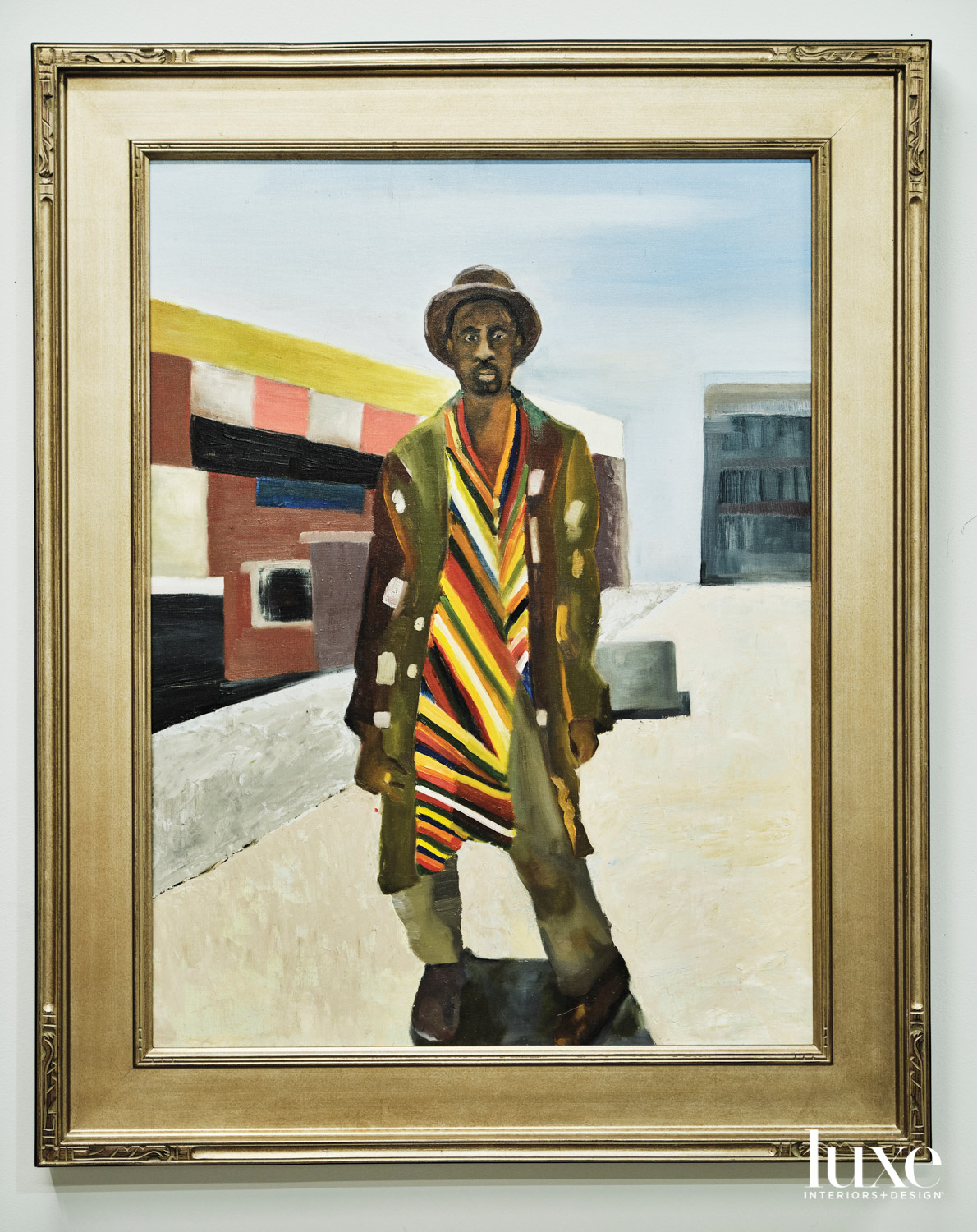
A painting entitled West is part of Rochelle Johnson’s “Portrait of a City” series.

A painting entitled West is part of Rochelle Johnson’s “Portrait of a City” series.
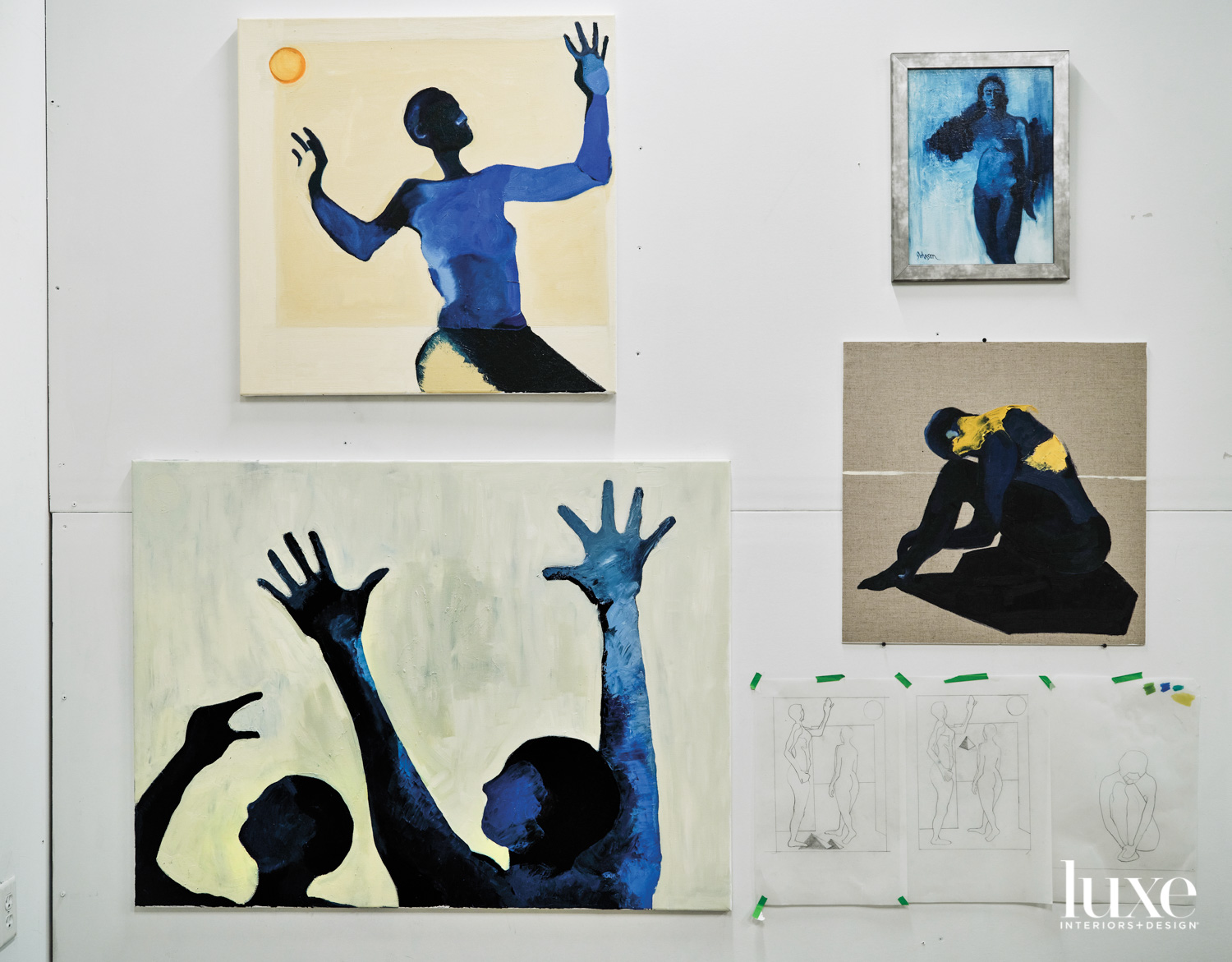
Johnson chose to use blue as the main color in many of her works, calling it an “uplifting” hue.

Johnson chose to use blue as the main color in many of her works, calling it an “uplifting” hue.
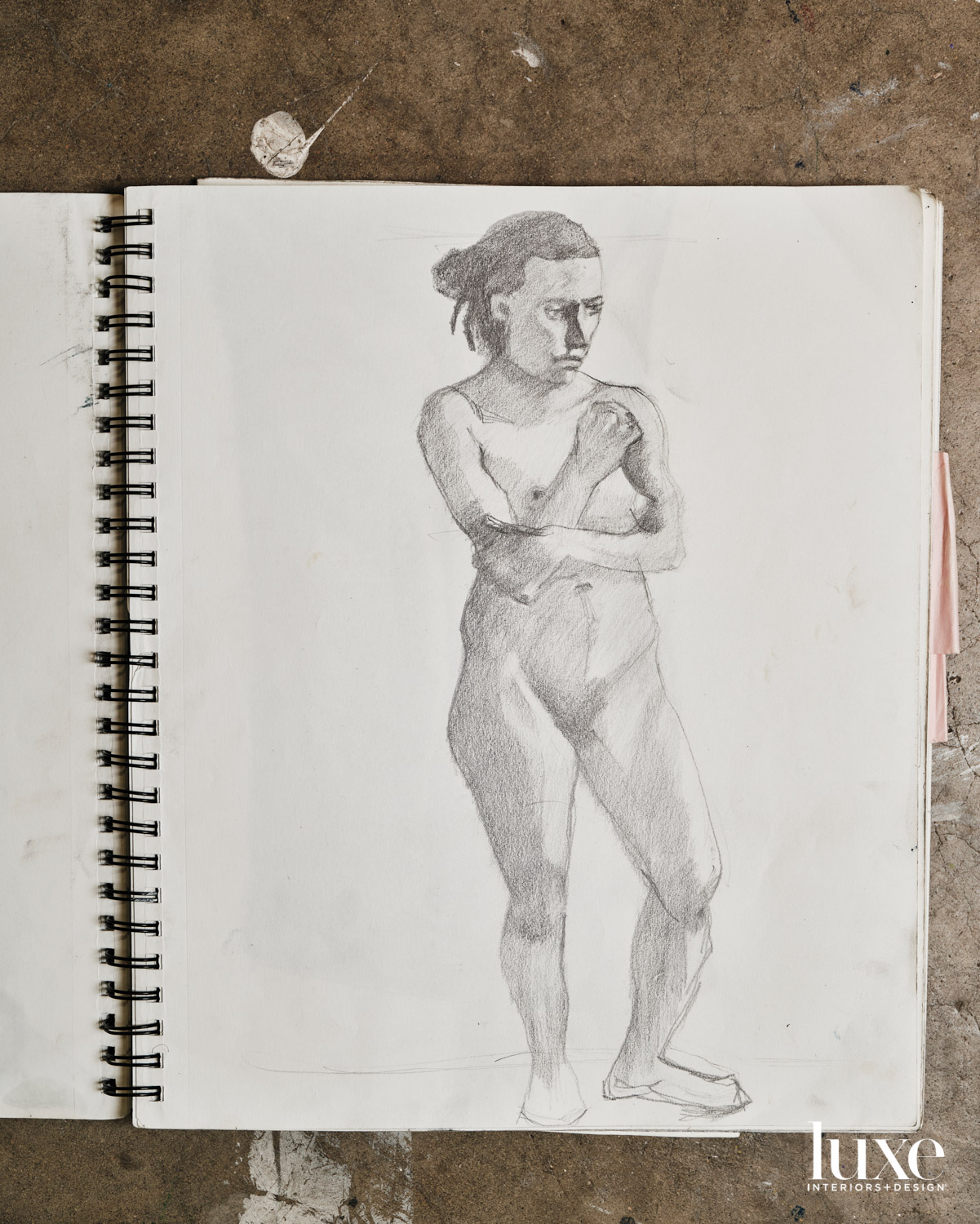
A sketch in Johnson’s notebook may one day become a painting.

A sketch in Johnson’s notebook may one day become a painting.
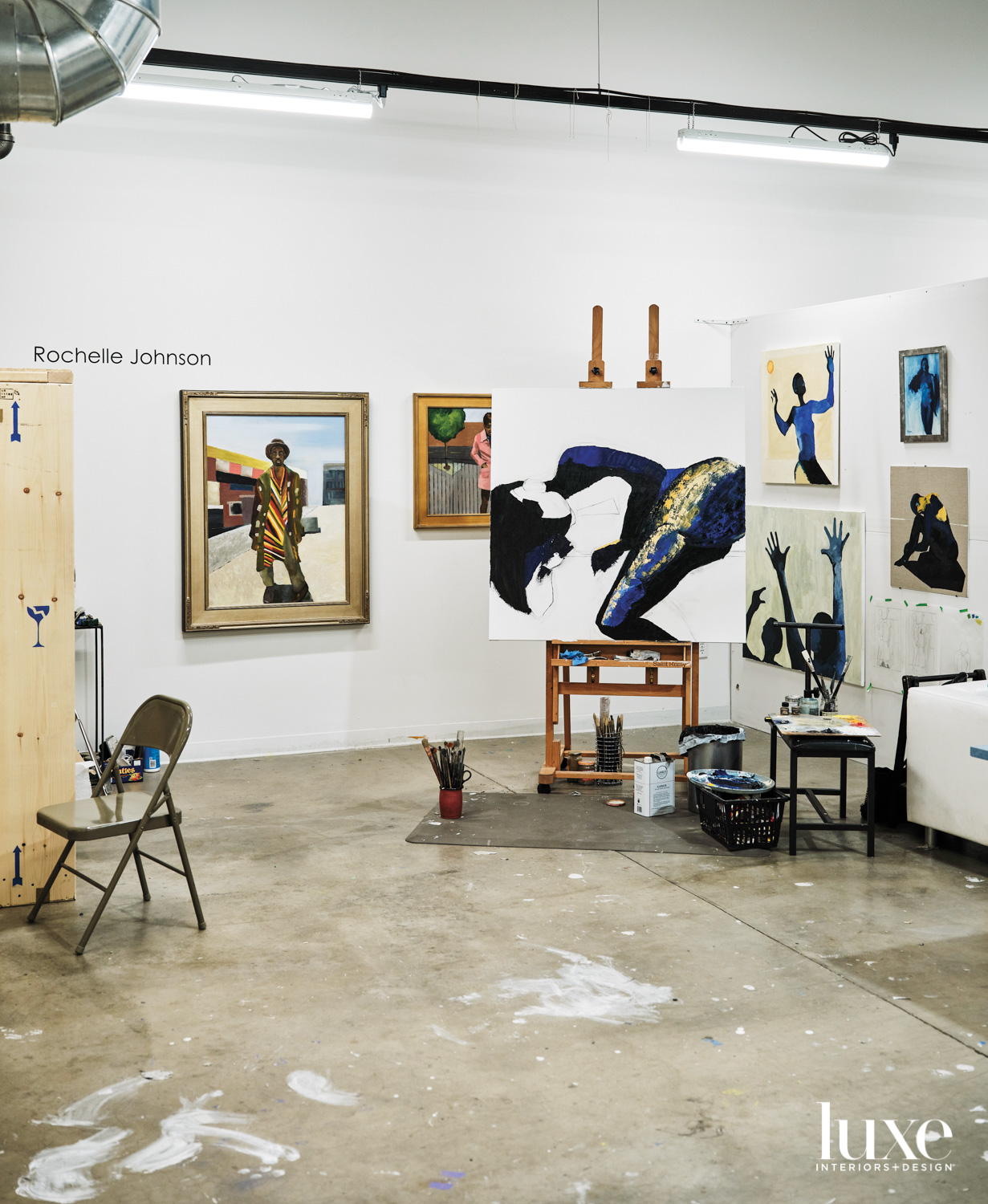
Art fills the walls of Johnson's studio.

Art fills the walls of Johnson's studio.
Joseph’s Mask is one of the paintings Johnson created for “From This Day Forward,” a group exhibition at the Boulder Museum of Contemporary Art reflective of the events of 2020. Some of Johnson’s work conveys her own feelings of isolation during self-quarantine or, as in Quiet Room—in which a figure is relaxing, feet up—rejuvenation. “I was wanting to be out in the protests, but I felt like it would be safer for me to stay inside because of COVID,” she says. “I was impressed with the younger generation getting out there and protesting the murder of George Floyd.”
Much of Johnson’s work shines a light on the unseen, as in “Blue World,” her series of black female nudes, a subject seldom displayed in galleries. She selected hues of blue to convey strength, wisdom, trust and regality. “There’s so much negative connotation around Black bodies, period,” she notes. “We can be considered vulnerable, innocent, beautiful and all the other stuff that everybody else is considered.”
Although exploring themes from the nullification of Black women to gentrification to unity, Johnson’s paintings are ultimately optimistic, which is a seemingly inherited mindset. “Being Black, you’re marginalized,” she says. “But I always had role models of people persevering. My mom was the director of nursing at Rose Medical Center. I had an uncle who took Hattie McDaniel to the Oscars the year she won, and he was a comedian in his own right.”
Continuously broadening her explorations— she’s now working on a new series focusing on young dancers—Johnson was recently chosen to become a resident at Denver’s RedLine Contemporary Art Center. “It’s been a godsend during this time,” she says. “There was a group of us who would come to the center religiously, so I had somebody to talk to. Plus, I’m getting a chance to work in a bigger space, so I’m doing larger paintings, and I’m loving it.”

